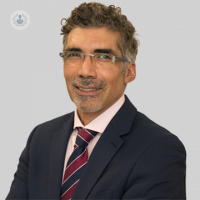Arthritis in children: Juvenile idiopathic arthritis (JIA)
Written in association with:About one child in every 1,000 under the age of 16 develops some form of chronic arthritis in the UK. These disorders can affect children at any age, although the type of juvenile idiopathic arthritis (JIA) is determined by the number of joints that are affected in the first six months of the disease.
Traditionally a child complaining of aching joints would have the pain dismissed as 'growing pains,' which may make it difficult to differentiate between that and JIA.

What causes juvenile arthritis?
When the immune system malfunctions, the lining of the joint known as the synovial membrane becomes inflamed and when left untreated, joint damage may occur. It is not known why the immune system does this, and dietary and emotional factors do not contribute to the development of JIA.
What are the symptoms of juvenile arthritis?
There are different types of juvenile idiopathic arthritis and the symptoms can vary for each one. If a child has any of the following for more than a couple of weeks, they should see a paediatric rheumatologist:
- painful, swollen or stiff joints
- joints that are warm to touch
- tiredness
- a returning fever
- a limp with no injury
How is juvenile arthritis diagnosed?
Diagnosis of JIA involves a physical exam, lab tests, a medical history and watching symptoms over the course of six weeks. It may be difficult to diagnose because some children may not complain of pain and swollen joints may not be obvious.
How is juvenile arthritis treated?
To control arthritis, your child will need to have treatment. Some children may benefit from physiotherapy, whilst for others it may mean steroid injections into the joints to help control the inflammation. If more joints are affected, or the arthritis does not respond well to steroid injections, there will be additional treatment with anti-inflammatory drugs.
If your child is suffering with juvenile idiopathic arthritis, you can schedule an appointment with Dr Mahmud via his Top Doctors profile.



